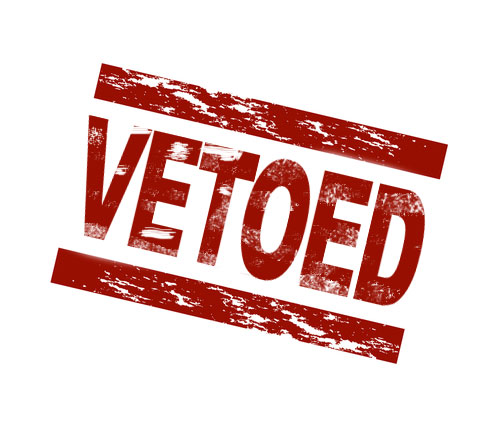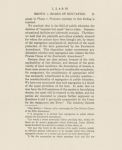A question that has recently been on my mind as I work on book chapters around helping English language learners with civic learning is the question of teaching for citizenship. Certainly, one of the key goals of the Florida Joint Center for Citizenship is preparing students to be citizens. It is, after all, in our name. But on reflection, perhaps we should consider that we are going deeper than that. We are, instead, preparing students for civic life. Not all of the students we seek to reach are citizens, after all. At the same time, the knowledge, skills, and dispositions we want children to develop should be practiced long before they are able to assume the rights and duties of citizenship anyway. Key here is the idea that civic life is more than simply voting or serving on juries, both of which are rightly and justly limited to citizens of the United States. But what does it mean to prepare students for civic life, to truly help them understand what it means to engage in their communities and to seek to be a difference-maker?
Before we begin considering that question, it needs to be stated plainly that what we are discussing here is a not a question of liberal or conservative. Instead, it is a question of doing what you think is right and necessary for the civic life of your community. Civic life should not be centered around partisan warfare; rather, it should be centered around true discussion, collaboration, and the common good as our Founding Fathers understood it. As one of my personal heroes, John Adams, so eloquently put it in the Constitution of the great state of Massachusetts:
Government is instituted for the common good; for the protection, safety, prosperity and happiness of the people; and not for the profit, honor, or private interest of any one man, family, or class of men: Therefore the people alone have an incontestable, unalienable, and indefeasible right to institute government; and to reform, alter, or totally change the same, when their protection, safety, prosperity and happiness require it.
So, in preparing students for civic life, what should we be addressing? The Campaign for the Civic Mission of Schools has suggested that the focus be on civic competencies that have stood the test of time and reflect the knowledge, skills, and dispositions necessary for civic life in the 21st century United States of America. Today’s post will discuss the first competency, knowledge; later posts will dive into the skills and dispositions, the Six Proven Practices, and the new(ish) C3 FrameworkC3 Framework and how that might serve us as civic educators.
Civic Knowledge: Starting With a Foundation
You have to start somewhere. For us, civic life must be built on a foundation that reflects what came before. You cannot engage in civic life and the pursuit of the common good if you have no or little knowledge of history, civics, and government. The Campaign for the Civic Mission of Schools describes the competency of civic knowledge thus:
Civic content includes both core knowledge and the ability to apply knowledge to different circumstances and settings.
- Key historical periods, episodes, cases, themes, and experiences of individuals and groups in U.S. history
- Principles, documents, and ideas essential to constitutional democracy
- Relationship between historical documents, principles, and episodes and contemporary issues
- Structures, processes, and functions of government; powers of branches and levels of government
- Political vehicles for representing public opinion and effecting political change
- Mechanisms and structure of the U.S. legal system
- Relationship between government and other sectors
- Political and civic heroes
- Social and political networks for making change
- Social movements and struggles, particularly those that address issues as yet unresolved
- Structural analyses of social problems and systemic solutions to making change
In other words, to effectively participate civic life, we must have an understanding of what came before. It means understanding the decisions that our Founding Fathers made, and the roots and consequences of those decisions. Why, for example, did they decide on the Electoral College? How did the party system develop? What kinds of issues have those seeking to lead, organize, or participate in civic life had to deal with over the course of our two and a half century history?
It also requires that we be able to interpret the key documents that have shaped civic life and civil society in the United States. This includes the Magna Carta, the U.S. Constitution, the Bill of Rights, the Declaration of Independence, the later amendments to the Constitution, and even the Articles of Confederation (among so many others). Important within this understanding is being able to grasp the different ways these documents have been interpreted in the past and continue to be debated in the present. For example, what do we mean when we say and debate the idea that Constitution is a living document? At the same time, we cannot know our rights, truly know and practice our rights, unless we understand them. And that rights are balanced by responsibilities and the importance of civic virtue and the common good.
To participate in civic life, we also need to understand how government works and how to take part in that government. This is more than simply voting; this is active engagement with fellow citizens and leaders in order to pursue change using the processes of government. And, again, we need note have a partisan perspective on this. The Tea Party movement of the previous decade is one form; the civil rights marches of the past century are another. Both seek to influence the levers and powers of government to pursue political, economic, or social change. But to do so effectively, we must help our students understand how government works and what influences government to take, or not take, action.
The idea of heroes, as presented in the list proposed by the Campaign, is to me a bit problematic and can lead to rather contentious debate. What do we mean by ‘political and civic heroes’? One person’s hero may be another person’s villain (as we see in the contentious debate over Confederate monuments). That does not mean, however, that this is a discussion to avoid. Indeed, we may find this debate a way in which we can model for our students the ways in which disagreements should be approach in a healthy civic culture. Whatever the choice we make, our heroes should reflect the types of engagement we want our children to have in civic life.
For me, most importantly, helping our students understand that engaging in civic life CAN make a difference is key. What networks can we form, what understandings can we refine, in order engage in civic life and pursue the common good?
Knowledge Matters
To me, without the competency of civic knowledge, the skills and dispositions are, to some great degree, worthless. If you lack understanding, how can you collaborate to make change? How can you engage in civic life? This does not serve as a call for rote memorization or some multiple choice test; rather, we need to teach our students how to find the information they need, how they may use the skills they have to interpret it, and, reflecting the desires of folks like Benjamin Rush, Thomas Jefferson, Noah Webster, and later Horace Mann, a common understanding and body of knowledge that is shared among all participants in civic life.
In a later post, we will take a look at the skills that can take advantage of this knowledge.



















